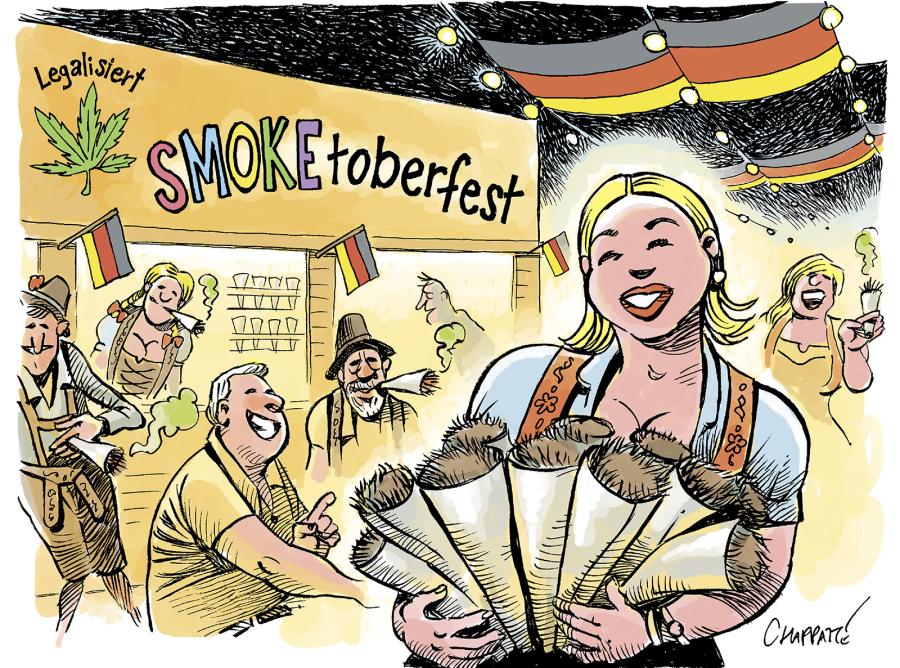Germany's Cabinet Approves Rules to Liberalize Cannabis Possession and Sales
In a landmark move, Germany's cabinet has recently approved new regulations aimed at liberalizing cannabis possession and sales in the country. This decision represents a significant shift in the nation's approach to cannabis, moving from strict prohibition to a more progressive and pragmatic stance. As the debate on cannabis legalization continues to gain momentum worldwide, Germany's move is indicative of changing attitudes and a growing recognition of the potential benefits of a regulated cannabis market. 
The Road to Reform
Germany has long maintained a conservative stance on cannabis, classifying it as a controlled substance and criminalizing its possession, use, and sale. However, over the years, there has been a growing call for reform, with proponents arguing that the current approach is not only ineffective but also counterproductive. They argue that a regulated cannabis market could bring numerous benefits, from generating tax revenue to improving public health and safety.
The New Regulations
The approved regulations represent a significant step toward cannabis reform in Germany. Here are some key aspects of the new rules:
-
Possession Limits: Under the new regulations, adults aged 18 and older will be allowed to possess up to 30 grams of cannabis for personal use. This marks a departure from the previous zero-tolerance approach and acknowledges that responsible adult use of cannabis can be decriminalized.
-
Sales and Licensing: Licensed retailers will be permitted to sell cannabis products, including dried flower and cannabis-infused edibles, to adults. These retailers will need to adhere to strict quality and safety standards. The licensing system aims to create a legal and regulated market, driving out the illegal black market and ensuring consumers have access to safe and tested products.
-
Cannabis Social Clubs: The new regulations also allow for the establishment of cannabis social clubs, where adults can collectively cultivate and share cannabis for personal use. This model has been successful in other countries and could provide a community-based approach to cannabis access.
-
Taxation: Taxation of cannabis sales is a key component of the reform. Revenue generated from cannabis sales will contribute to public funds, supporting various initiatives such as drug education and treatment programs.
Benefits and Challenges
The decision to liberalize cannabis possession and sales in Germany comes with a host of potential benefits:
-
Economic Opportunities: A regulated cannabis market has the potential to boost the economy by creating jobs, generating tax revenue, and stimulating related industries such as agriculture, research, and tourism.
-
Public Health: By regulating cannabis sales, the government can enforce strict quality control measures, ensuring that products are safe and free from harmful contaminants. It also allows for the implementation of public health campaigns to educate consumers about responsible use.
-
Reduced Crime: Legalization has the potential to reduce black market activities, taking profits away from criminal organizations and reducing the burden on the criminal justice system.
However, there are also challenges to be addressed, such as:
-
Youth Access: Critics of cannabis reform worry about increased access for young people. It will be crucial for the government to implement strict age verification and education programs to minimize underage use.
-
Regulatory Hurdles: Establishing a robust regulatory framework is a complex task that will require careful planning and resources. Ensuring that licensing and oversight are effective will be crucial for the success of the reform.
-
International Agreements: Germany's move toward cannabis liberalization may conflict with international drug treaties. The government will need to navigate these challenges diplomatically.

Germany's cabinet's decision to liberalize cannabis possession and sales is a significant step toward a more rational and evidence-based drug policy. It acknowledges the changing attitudes toward cannabis and the potential benefits of regulation. While challenges lie ahead in implementing and fine-tuning the new regulations, this move represents a positive shift toward a more balanced and effective approach to cannabis in Germany. As the world watches the progress of this reform, it may inspire other nations to reconsider their own cannabis policies in the pursuit of more sensible drug laws.

